Runtime Dungeons
Setup Runtime Build Script
Dungeon Architect can build dungeons at runtime, so you can have a new dungeon everytime you play
You do this by calling the Build() function on the Dungeon component
Create a new C# script anywhere in the project window

Open the script for editing
using DungeonArchitect;
using UnityEngine;
public class MyDungeonBuilder : MonoBehaviour
{
public Dungeon dungeon;
void Start()
{
if (dungeon != null)
{
dungeon.Build();
}
}
}
Here, we've provided a public attribute named dungeon of type Dungeon. You'll need to import the
DungeonArchitect namespace using DungeonArchitect;
Create a new GameObject and rename it to something appropriate
Reset the transform
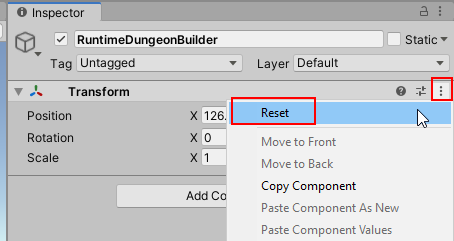
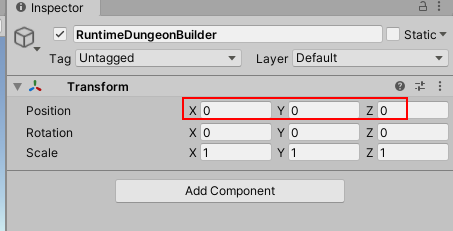
Add our script to this game object
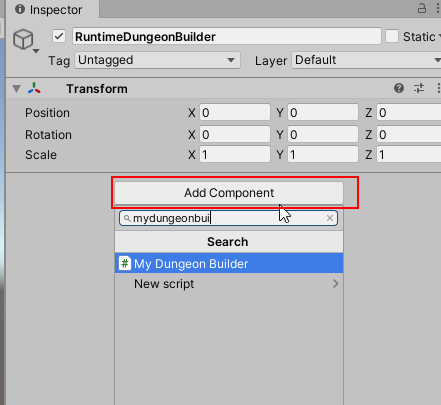
Notice the Dungeon parameter is exposed. This is because we made a public attributed named dungeon in our code
public Dungeon dungeon;
Assign your dungeon reference here.
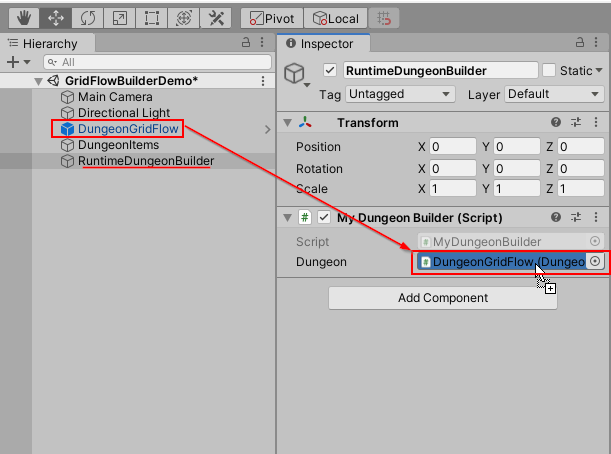
When you hit play, this dungeon will be built (since we call dungeon.Build() in the Start method)
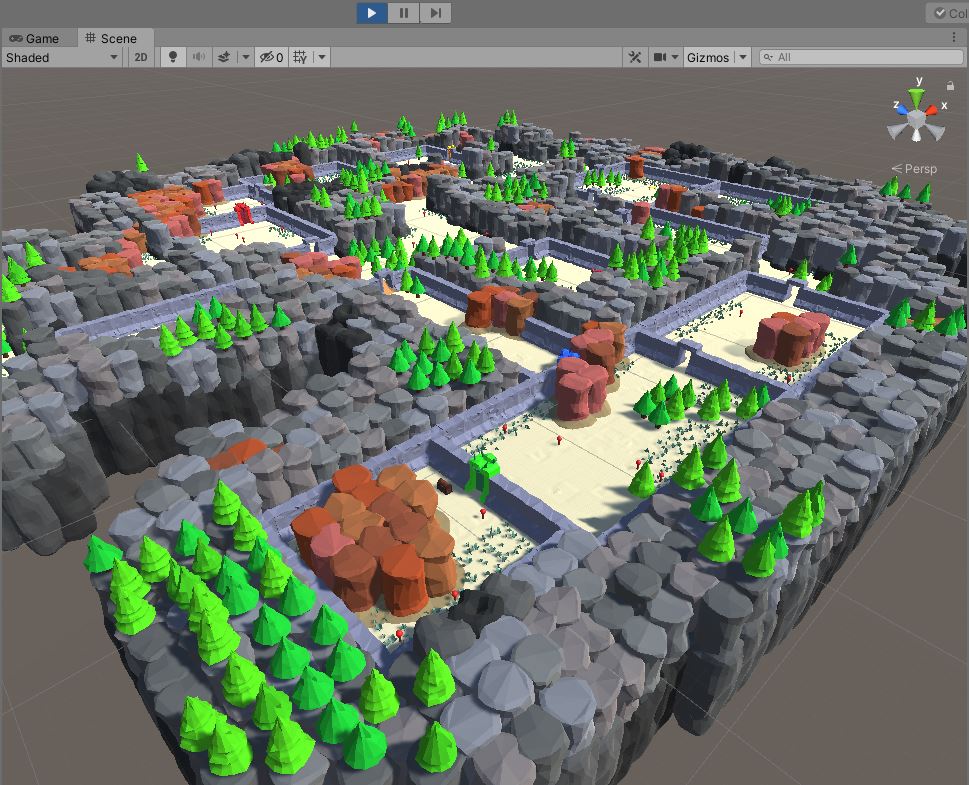
If you build runtime dungeons, make sure the dungeon hasn't already been built in the editor. Due to the way unity optimizes static game objects, the prefabs that were spawned in the editor won't be removed at runtime while building a new dungeon
Randomize Dungeon
You might want to have a different dungeon everytime you play
You do this by setting the seed parameter in the dungeon configuration before calling Build()
dungeon.Config.Seed = (uint)(Random.value * int.MaxValue);
using DungeonArchitect;
using UnityEngine;
public class MyDungeonBuilder : MonoBehaviour
{
public Dungeon dungeon;
void Start()
{
if (dungeon != null)
{
dungeon.Config.Seed = (uint)(Random.value * int.MaxValue);
dungeon.Build();
}
}
}